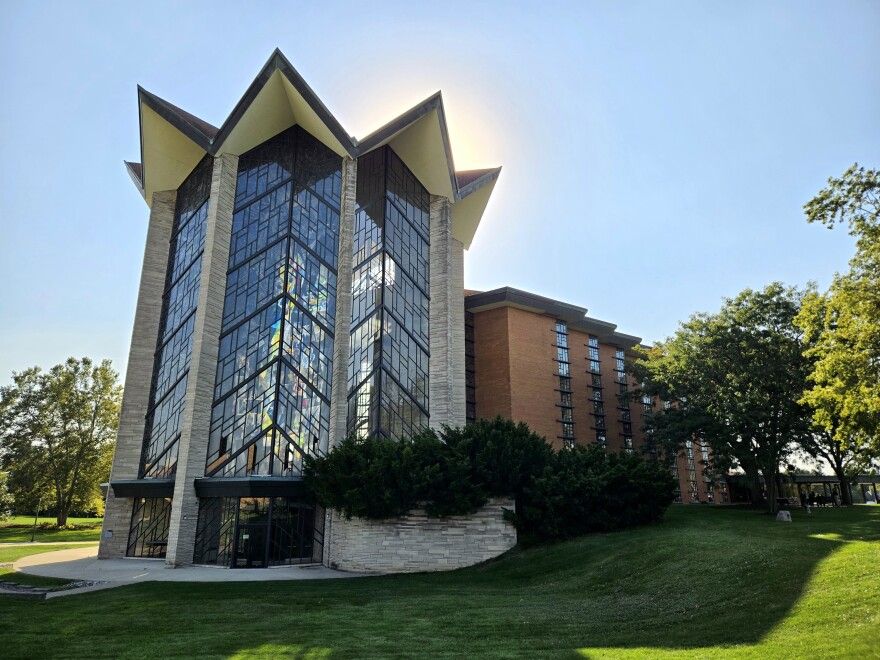Valparaiso University will be able to borrow some money, after the Valpo City Council agreed to act as a pass-through. Council members agreed Friday to issue up to $117 million dollars in tax-exempt revenue bonds that the university can't legally issue on its own, although the university expects the final amount to be closer to $55 million.
Chief Financial Officer Mark Volpatti says about $12 to $15 million will be used for new capital projects and to make up for deferred maintenance. "Putting an elevator into an existing building for accessibility, looking at some science project labs and also, maybe, perhaps, renovating some unfinished spaces for student and academic success," Volpatti told council members during Friday's special meeting.
Other projects include new chillers and boilers, roof repairs and paving work.
But the bulk of the bond proceeds will be used to restructure Valparaiso University's existing debt. Volpatti said the university ultimately decided not to refinance one set of bonds, resulting in the lower overall figure.
"With different changes of economic politics and just interest rates, they are a lot higher, so it doesn't make financial sense at this moment to do that," Volpatti explained.
The bond will have no impact on Valparaiso taxpayers and won't restrict the city's ability to borrow money in the future. Valparaiso University alone is responsible for repaying the debt.
This comes after the university sold some of the Brauer Museum of Art's collection to fund residence hall improvements. Some wanted the city to require the university to adopt a deaccession policy that would prevent similar sales in the future, as a condition of the bond issuance. Professor John Ruff presented a letter with more than 50 signatures.
"This will not reverse the damage done to the museum's reputation or to the university's reputation, for that matter, but it may be a way to begin to rebuild trust in university leadership, which is key to the university's viability and future success," Ruff said, reading from the letter.
The letter said the museum could be a tourist attraction for the city, but it's been mismanaged by the university. It also argued that the previous art sale hurt the university's bond rating.
Some council members said they didn't think the proposed deaccession policy should be included in the bond process, but still criticized the way the university has handled its assets.
Diana Reed accused it of shifting its focus from education to real estate development. She estimated that 40 homes in her precinct have been demolished by the university. "This, at a time when government, civic and religious leaders are all emphasizing the need for affordable and attainable housing," Reed noted. "The irony is hard to miss."
In the end, council members felt it was important to ensure the financial viability of the university as a whole.



